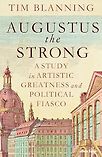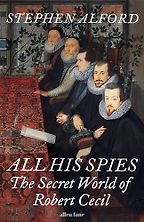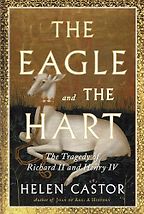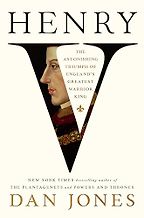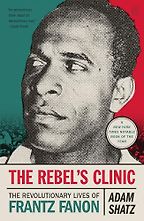Perhaps you could begin by telling our readers about the Elizabeth Longford Prize for Historical Biography, and what the judges are looking for.
The prize is now in its 22nd year. It was founded over two decades ago by Flora Fraser, the granddaughter of Elizabeth Longford, and by Flora’s then-husband Peter Soros. The idea was to celebrate and encourage the kind of historical biography that Elizabeth Longford wrote. She was the acclaimed biographer of Queen Victoria, of the Duke of Wellington, and several others; she wrote with an accessibility and fluency, as well as uncompromising scholarship.
It’s that kind of template that Flora, herself a very distinguished historical biographer of both American and British 18th-century figures, wanted to reward and encourage. I think it’s probably fair to say that Elizabeth Longford also had a certain astringency and specific humour in how she approached her subjects. That’s something we look for too.
So, in the 20-odd years we have been doing this prize, the variety of lives and books that we have identified as ‘historical’ has evolved and, I think, been quite influential. I mean, there are kings and queens—Anne Somerset’s great biography of Queen Anne and Andrew Roberts’s book about George III—who are, obviously, historically important figures. But there has also been Ben McIntyre’s life of Kim Philby, A Spy Among Friends, and Frances Wilson’s brilliant little book on J. Bruce Ismay, the man who owned the White Star Line and did not go down with the Titanic—and lived through a life of shame and reclusiveness after that. The argument for figures like these being historically significant is, I think, very strong and perhaps needs to be made. I should perhaps emphasise this isn’t strictly about this year’s shortlist.
Next year, we will present a one-off essay prize, the Elizabeth Longford Essay Prize, which will be funded and presented by Flora Fraser and Peter Soros to encourage younger writers under the age of 35 to try their hand at a brief historical biography, in an essay of 3000 words.
I think all of us judges, and certainly Flora and Flora’s mother Antonia Fraser—this is a formidable female dynasty of historical biographers we are dealing with here—are trying to draw attention to the fact that historical biography, as a genre, is a sophisticated, demanding, scholarly and creative form of historical writing.
I mean, I would say that, wouldn’t I? I write historical biographies myself.
What would you say comes forefront in a historical biography? Are you looking for a fascinating personal story, or a person who represents the time they live in, or both?
All of that and more. But at the same time, trying to take a broad and interrogative idea of what makes somebody’s life historically significant. This year, for instance, we have shortlisted a biography of Frantz Fanon, who died at 36, unknown to the wider world, but who is an immensely historically significant figure because of the influence of works like The Wretched of the Earth, which have changed our entire conception of post-colonial identity and race.
That’s a case where a writer takes their place as a historically significant figure. But at the same time, we have to follow a careful line, by not straying into literary biography. Which is equally valid as a genre—and again, I would say that, I wrote a life of W.B. Yeats—but what we are looking for here is historical biography, for people who changed the temper of their times, or symbolise a change in the temper of their times.
One of our best winners, in my opinion, was Julian Jackson’s genuinely great biography of General de Gaulle, A Certain Idea of France. It’s a really powerful statement about patriotism and nationalism and French identity, as well as a brilliant portrait of an extraordinary person. That’s the ideal, in my view of historical biography.
Thank you. Let’s look at the books on this year’s shortlist, beginning with Stephen Alford’s All His Spies: The Secret World of Robert Cecil. Perhaps you could offer our readers a bit of insight into what the book is about and why the judges admire it.
The author, in his acknowledgements, says it is not a biography as much as a portrait, and that is a fertile subject for analysis. It’s a portrait of Robert Cecil, the spymaster. That may be anachronistic, but the extraordinary thing about Robert Cecil, who followed his father as one of the chief ministers of Elizabeth I, was his amazing network of spies and informants.
Stephen Alford, working from original sources, has redrawn the web and the spider at the centre of it, and shown how the Elizabethan state maintained itself against threats, both external and internal, through surveillance. Again, that’s a word that may seem out of time, but is highly relevant for an era of the surveillance of subversive activity in the British realm.
It’s a very subtle, probing, interesting analysis of the way that a state is run, but also of how a person achieves primacy among a range of rivals and enemies, and sometimes allies, and remains at the centre of power until the very end of his life. He ended life as Marquis of Salisbury, still a family of influence and note in English life.
It also shows how the tangled web of Elizabethan power politics affected the way that the state is run. This would be of immense, long-lasting importance from then on. There are also wonderful concrete details, the telling details, of where a person lives, how they furnish their house, celebrates the great events of their life. He vividly recreates the tapestry, at the centre of which is this extraordinary figure, Robert Cecil.
I say ‘extraordinary.’ He is both extraordinary and ordinary, as many very senior civil servants are. Perhaps I should have said that it’s like the ur-Sir Humphrey, the civil servant, or the originatory figure that culminated in ‘M’ of the James Bond books.
I like that—M as heir to Robert Cecil.
Well, I mustn’t give the impression that Stephen Alford likens his character to M, but we are talking about a surveillance state, and about the polite ruthlessness with which a civil service tends to be manipulated and institutionalised, especially when there are external threats to the state, as is clearly the case in Elizabethan England—and, one could also say, in 21st century Britain. So it may be frivolous, but not entirely irrelevant, to draw the line forward to M at the centre of his web.
Let me draw us onward to the next book, Tim Blanning’s Augustus the Strong. Would you give us a brief introduction?
Tim Blanning is the great doyen on the history of Central Europe, notably the German states that will later become Germany, in the late 17th, early 18th century. He’s written wonderful books about culture, music, and painting in this period, as well as a terrific biography of Frederick the Great.
Augustus the Strong—and I think, if you took the exact translation, he was known as ‘Augustus the Physically Strong,’ which implied that brain power didn’t have much to do with it—was a man who fought first and thought second. He was a bit of a rascal and a warmonger, and a notable fornicator and adulterer who shocked many of his contemporaries. In terms of power politics, he was the Elector of Saxony who forced his way into becoming elected King of Poland, which was an absolute disaster for Poland and for him.
He got involved in a crazy, duelling-type war with the repellent figure of Charles XII of Sweden. So his public life as a warring monarch in late 17th, early 18th century Europe was a fiasco, as Tim Blanning’s subtitle says.
Right, the subtitle reads: A Study in Artistic Greatness and Political Fiasco. What artistic greatness?
Tim Blanning makes the case that, though he may have been a political fiasco, he was one of the most important patrons of music, of theatre, of public spectacle—notably and brilliantly of Baroque architecture in Dresden, with its astonishing range of buildings. He was very much at the centre of all this. He worked very closely with the architects, and was an original and very committed aesthete, though he didn’t seem like it in other aspects of his life.
So what Tim Blanning’s book is asking us to judge is whether a figure can be both a reviled failure in politics and yet historically significant because of his authority in other arenas of life, which may—in the long term—be more influential. Like Baroque architecture or early 18th-century music.
Blanning is also an astonishing researcher—and we do always look for scholarship in these books—and the range of languages and sources, the originality of the material out of which Tim Blanning has reinvigorated this half-forgotten figure, is tremendously impressive.
It’s also extremely funny. I use the word advisedly; I mean, it’s sometimes almost laugh-out-loud funny. This is a quality that I think far too few historians care enough about. It’s a witty book, as well as a profound one.
It sounds very brilliant. I’m interested in this figure of the roving polygot researcher, leaping from archive to archive. Language skills must be a crucial component in the training of a historical biographer?
It’s vital if you are going to write about countries outside your own language. It used to be far more part of university training of historians, especially in Oxford and Cambridge. Less so now. There is no longer an explicit stipulation that you must have a good working knowledge of the French language to study French history in most universities. Ditto for German history, and so forth. I think that’s a great loss and a great pity, but I’m afraid it’s a reflection of the way that languages have been demoted in favour of the so-called STEM subjects in secondary education. But that’s not what we are here to talk about.
Quite. Let’s move on to Helen Castor’s The Eagle and the Hart.
Yes. The Eagle and the Hart is in a rather tricky genre, but she pulls it off very well: a double biography. Her subtitle is interesting: The Tragedy of Richard II and Henry IV, because she’s obviously referencing Shakespeare here.
Shakespeare, of course—and we will see this in another book on the shortlist—has shaped our conception of these monarchs at this time of ruthless transition to the Lancastrian monarchical family via the deposition, essentially, of Richard II. Richard II is made such an interesting, flawed and strange figure by Shakespeare’s great play, which Castor is pushing back against.
Helen Castor is a very fine archival historian, and she digs into the reality of the figure, although he still is rather Shakespearean in the flawed, narcissistic boy king who she sets against his ruthless Bolingbroke relation. While they were superficially friends, relatives, and allies at a certain earlier part of their lives, one, of course, supplanted the other. So it has great drama.
Psychological astuteness is an essential part of the weaponry of any historical biographer, and I think Castor has it in spades. It’s a vastly ambitious book, very long, stringently researched, but written with grace and pace, which was very characteristic of Elizabeth Longford, and what we look for in this prize.
That’s an interesting point—the role of psychology in biography. When we speak to historical novelists, they often talk about constructing their stories in the gaps between the known facts. I suppose in biography there are different demands, but is there still a place for psychological analysis and speculation?
I think there is. And one of the authors on our shortlist, not a book we’ve discussed, says quite frankly that in some ways his book is a work of historical imagination as well as research. There’s got to be an element of that, while keeping away from the ‘must have’ or ‘would have’ or ‘surely she would have thought’—you know, the conditional case that you have to watch for very carefully when you are analysing historical biography.
At the same time, the biographer has, I think, a right to exercise their imagination from time to time, and where there are gaps, something has to be supplied. The stringency with which you infer or deduce or assume has to be observed. You can’t embrace the kind of wishful thinking that allows you to assert as a fact what you want to have happened. We have all read historical biographies that do that too much. But none of the books on this shortlist, or any of our shortlists over the last 20-odd years, have, I think, done that. It’s one criterion by which we exclude a book quite early on, if imagination was left too free a rein.
Absolutely. Shall we move on to Dan Jones’s Henry V: The Astonishing Rise of England’s Greatest Warrior King?
Dan Jones’s book is risky, in a way, because he writes in the present tense as a way of trying to make it more immediate. Again, it’s written in the shadow of Shakespeare. That version of Henry V brings in Falstaff and roistering youth, and belatedly realising the seriousness of what inheritance has presented to you. Dan Jones would have very little patience with the Shakespearean view of Henry V.
Henry’s reign, though so influential—especially in terms of the wars in France, Agincourt, everything like that—was very short. He died very young. So what Dan Jones has done is concentrate on the first decades of his life, before he succeeds his father, showing how he positioned himself, how he trained himself, and how his various competencies were worked into a certain kind of authority. He displayed a real ruthlessness, both in using people and manoeuvring his position. At a certain point, he even seems to have been in opposition to his own father. The king himself, of course, supplanted Richard II, as surveyed in Helen Castor’s book. So it’s a very different figure to the Shakespearean Henry.
In the end, we see somebody involved in a pattern of ruthless power play from his early boyhood. And what’s surprising is how much evidence there is to sustain this. It’s an imaginative and arresting book by somebody writing from a rather different vantage point than some of the other entrants on the list.
Another thing this prize has always tried to do is take a pretty catholic attitude to style and approach and voice, if I can put it that way, as well as looking at books written very much from the traditional angle of the historian-biographer. We are open to looking at books that try to adopt a different voice—in this case, the sometimes almost breathless present tense, which grabs you by the scruff of your neck. We think, by and large, it’s worked pretty well.
Do you think that a biographer working with a very famous subject has to swim against the stream in some way? Is it more complicated to find the angle when they are already known, and perhaps inaccurately?
I think that’s true. If I could revert to something I was saying earlier about the distinction between historical biography and literary biography, I think that’s especially the case in literary biography. I wrote a large, two-volume authorised life of W.B. Yeats. Yeats wrote his own so-called autobiographies, which are wonderful works of fiction, and almost spectacularly unreliable.
Ha!
Many writers do this, sometimes deliberately to fox the trail for people who follow—and Henry James is an example here—to highlight the parts of their life that they want emphasised, like their education. I think this is more of a danger with literary biographies.
A good example, actually, is Muriel Spark, who wrote, again, a very misleading autobiography, deliberately to throw people off the scent. Frances Wilson, who has just finished a book about Muriel Spark, was very much up against that. And Frances Wilson is someone who has won the Longford Prize for a historical biography, as I said.
Individual biographers can move between the two genres. There are different challenges, I think. I myself wrote historical biographies of Charles Parnell and Lord Randolph Churchill, and there were different challenges, I think, to my work on Yeats, because neither Churchill nor Parnell wrote anything like an autobiography. They didn’t have, or didn’t use, the weapons of the misleading autobiography, which is a genre for creative writers.
Brilliant. And you have already mentioned the final book on our list, which is Adam Shatz’s The Rebel’s Clinic: The Revolutionary Lives of Frantz Fanon.
Fanon is a fascinating character who has come more and more into focus as post-colonial politics and the politics of race have become vital to the way we see our world and how it is constructed. He is also a quite important figure in the history of psychiatry.
He was born in Martinique as a French citizen. French colonies are not called precisely colonies, they become departments of the metropole. By fighting for France in the war and by going to study psychiatry in France, Fanon, first of all, seems a figure who would be very much in line with the French theory of assimilation, in which you are a French citizen before any other identity. This is a very problematic concept, as we see among France’s Arab population at the moment.
Fanon, in so many ways, anticipates this, anticipates the analysis of this contradiction in Black Face, White Mask and in The Wretched of the Earth. But his increasingly uncompromising and radical take on race and colonialism has inspired and, in some ways, been misinterpreted.
There’s a very brilliant conclusion to Shatz’s book, where he looks at the misinterpretation and uses made of Fanon, and, again, we are back to the question of historical imagination. Shatz speculates about, if Fanon hadn’t died at the age of 36, where his thought would have taken him, and whether he would have moved into more radical and confrontational forms of analysis of post-colonial and race politics, as many people who were influenced by him have done, or whether he would have moved towards a more reconciliatory and less confrontational analysis.
Shatz is also very interesting on his private life. He was able to interview many people and shows that Fanon was, in some ways, an intensely flawed person. Shatz doesn’t shrink away from this at all. I think, psychologically as well as politically, it’s an important and enlightening statement that is being made here.
It’s interesting to be comparing, essentially, a failed monarch in the 18th century, like Augustus, to a dramatically successful, rather ruthless monarch several centuries before, like Henry V, and then an obscure Black writer and psychiatrist who altered the way people think in the mid-20th and certainly 21st century.
These are all biographies taking a historical approach, but they help us redefine and rethink what makes a person historically significant.
Interview by Cal Flyn, Deputy Editor
June 1, 2025. Updated: December 12, 2025
Five Books aims to keep its book recommendations and interviews up to date. If you are the interviewee and would like to update your choice of books (or even just what you say about them) please email us at [email protected]
Five Books interviews are expensive to produce. If you've enjoyed this interview, please support us by donating a small amount.

